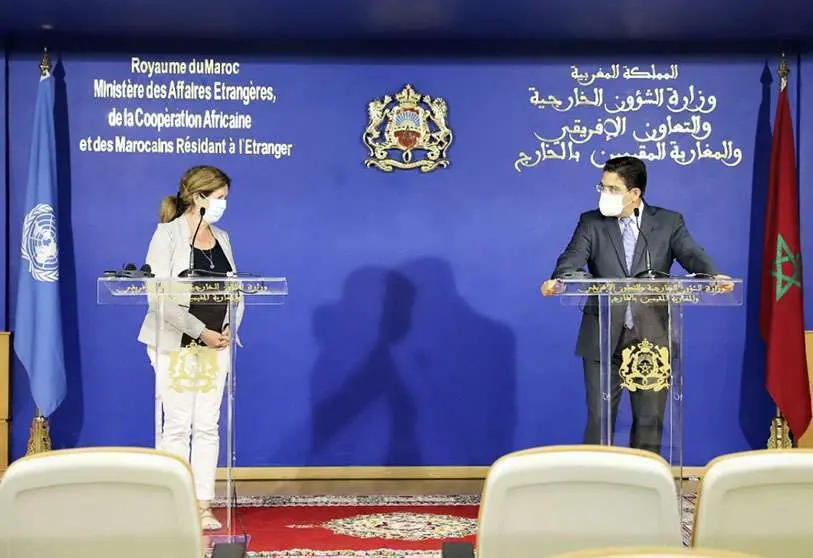La misión de Naciones Unidas en Libia agradece el apoyo de Marruecos para resolver el conflicto

The United Nations Support Mission in Libya (UNSMIL) has appreciated the continued support Morocco is giving to the UN. In the words of the special representative and acting head of UNSMIL, Stephanie Williams, during a press conference following her meeting with the minister of foreign affairs, African cooperation and Moroccans living abroad, Nasser Bourita: "The Libyans are very happy to know that I am in Morocco because they are aware that the kingdom has a formidable history of supporting the United Nations processes".
A week ago, the internationally recognised Tripoli-based government of national accord (GNA) issued a communiqué with rival authorities calling for an immediate ceasefire and elections in March next year. There was no direct comment on this ceasefire from Marshal Jalifa Haftar, but Aguila Saleh, president of the parliament based in the east of the country, which supports him, also announced a cessation of hostilities.
"The statement by the president of the ANG's Presidential Council, Fayez Sarraj, and the Speaker of the House of Representatives, Aguila Saleh, calling for a ceasefire and a return to the political process was a very brave statement that we should accompany," Williams said from Rabat.
"I am very grateful for the consultations I have had with Mr. Bourita and I am confident that we can work together to build this inclusive dialogue and this Libyan story," the UN official added.
Libya has been living in chaos torn by violence since Colonel Muammar al-Qadhafi was deposed by NATO-backed forces in 2011, and the nation has since been embroiled in a civil war that has also created tensions within the North Atlantic Alliance. Both sides have international support: Turkey, the UN and Qatar are among those supporting the NAG, while on the other side are Russia, Egypt and the United Arab Emirates, which are backing Haftar.
The oil-rich country is a key transit point for migrants heading to Europe from Africa.








